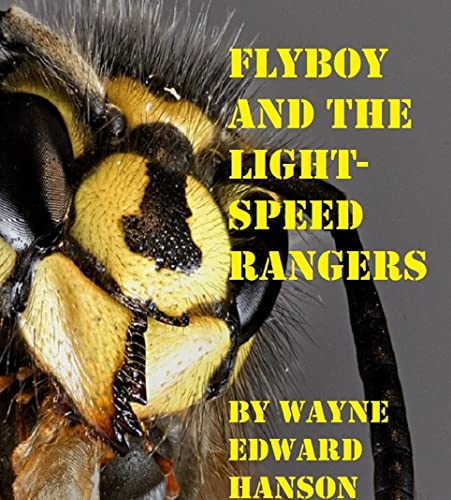Wayne Edward Hanson’s FLYBOY AND THE LIGHT-SPEED RANGERS is a quirky exploration of philosophy and human nature wrapped in a shiny silver science fiction wrapper. The premise is the development of a FTL drive, created from the genius imagination of an artichoke farmer named Biggles who receives astounding scientific revelations when he’s struck by lightning in the middle of weeding. To test the drive, a team of individuals with peculiar talents is assembled for a top-secret project whose purposes become more and more complex and mysterious as the plot goes on. Readers see the experiments in light-speed travel, and their increasingly weird results, through the eyes of cocky, irreverent John Milburn, the project’s navigator, whose eidetic memory is necessary to guide the ship safely home through the twists and confusions of spacetime at near-light and light-speeds. He’s not always the most sympathetic of narrators, or the most objective, but he rarely fails to be entertaining, and when he gets annoying, there’s always someone there to take him down a notch in a satisfying manner.
The achievement of near-light speeds leads to strange and incongruous happenings – among the mildest, at 0.5 lightspeed, the project participants find themselves bobbing up to the surface of reality to find there a pleasant teashop where a kindly Jamaican couple serve them tea and cookies in exchange for company and conversation. At higher speeds, the crew start to develop the creative powers of deities and meet the great(?) Biggles himself – just in time to save the universe, or perhaps not, from an oncoming Great Rip. Whether or not this is scientifically plausible, and certainly there’s a good deal of hand-waving in describing the mechanism of the drive, it’s delightful fun. It also opens the way for a lot of interesting philosophical speculation about human existence, potential and purpose, as well as what it would actually be like to wield Godlike powers with Godlike omniscience (apparently, a lot less fun than one might imagine). The plot has almost as many twists and turns as the Biggle Drive produces, and some of them get a bit lost by the end, but they’re entertaining enough to keep readers involved and engaged if they’re willing to relax and enjoy the ride. This is not a book to take too seriously or examine too deeply, but it’s a great deal of lighthearted fun with some interesting food for philosophical exploration, and if you feel called upon to do so over some tea and cookies with a bunch of smart alec friends, all the better.
A lively romp at near-light speeds with a cast of bizarre characters, unexpected events, and a plot that wanders through alternate universes but never quite gets lost, Wayne Edward Hanson’s FLYBOY AND THE LIGHT-SPEED RANGERS is a quirky charmer of a book best enjoyed with a healthy suspension of disbelief and a relaxed sense of humor.
~Catherine Langrehr for IndieReader

